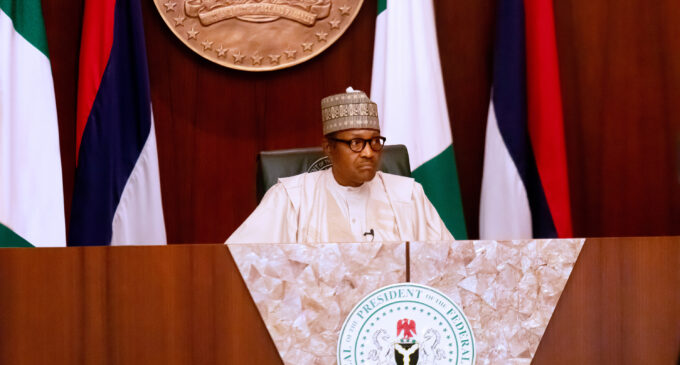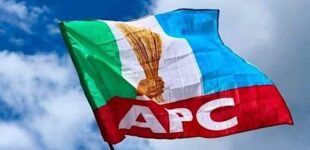When will our local govts matter?

BY CHINEMELU NWOKIKE
I know of no safe depository of the ultimate powers of the society but the people themselves; and if we think them not enlightened enough to exercise their control with a wholesome discretion, the remedy is not to take it from them, but inform their discretion. ~ Thomas Jefferson
If there is one good thing about the widening schism between Governor Obiano and Prince Arthur Eze, it is that it resurrected the perennial affliction with the third tier of government. The problem is not peculiar to Anambra state. A majority of Nigerian states have subjugated the local councils to mere appendages of the state structure.
I am aware that Arthur Eze’s motive is obviously political, however, the allegation of mismanagement of council funds got me entangled in a maze of posers. Why have we left our local council system in a comatose state? And why are we so complacent in the face of the obvious anomaly?
Let us briefly peruse the evolution and significance of the third tier of government.
The crucible of what we have in the 1999 constitution is the definition of a local government as detailed in the 1976 local government reform which stated that the extant laws “should give the council substantial control over local affairs as well as the staff and institutional and financial power to initiate and direct the provision of services and to determine and implement projects so as to complement the activities of the state and federal government in their areas”.
The ultimate goal of creating local councils is bringing government closer to the people at the grassroots. It aims to enable the participation of ordinary citizens in an elite-dominated governance process and to ensure proper accountability. That way a more equitable distribution of resources is deployed to stimulate economic growth, reduce poverty and sustainable development.
However, this has proven to be a mirage over the years largely owing to the perennial interference of higher levels of governments dating back to the first military intervention in 1966 when all local government councils were abolished and sole administrators appointed. The autocratic system of sole administratorship introduced by the military reduced consultation and consensus-building hence participation by the people was gradually eroded.
Paradoxically, it was during the military era that Nigerians witnessed local councils with “institutional and financial power”. The most remarkable being the Babangida local government reforms which comprised of the Dasuki Report initiated by the preceding Buhari administration. I remember supplying diesel to a contractor for a job executed for the Petroleum Trust Fund through Awka South Local Government during the Abacha regime. Nowadays, council chairmen can hardly approve the supply of a trip of laterite without the governor’s consent.
Even though the joint account system as we know it today was brought into being by an act of the national assembly known as “allocation of revenues (federation accounts etc) act 1981, no state government prior to the year 2000 implemented it over the long stretch of successive military juntas. The Local councils usually got their allocations from the respective federal pay offices which transmuted the records to the accountant General’s office. Back then people always paid particular attention to figures for their LGAs in the publication of disbursements.
But standing on the 1999 constitutional provisions of section 162(6) for the establishment of State joint local account (SJLGA), our governors have persistently abused this instrument for the implementation of ‘fiscal federalism’ at the local government level through the diversion of funds for selfish interests.
In addition, the governors have severally truncated the tenure of democratically elected local councils and replaced them with cronies and jobbers. These distortions significantly diminish the ability of local councils to discharge the constitutional mandate of providing democracy dividends to the grassroots.
It is not as if successive civilian administrations at the centre have not tried to curb the governors’ excesses and revive the local councils. Obasanjo in his second term established a technical committee to interrogate, inter alia, the benefits of retaining vis-a-vis modifying the local government system. That committee adopted the retention of the existing 774 councils but recommended a parliamentary system for running them.
Former President Goodluck Jonathan on his own part sent a Bill to the National Assembly to stop the operation of the joint state/local government accounts in a bid to enhance the financial autonomy of the constitutionally recognized local government areas in the country.
Let us also recollect that on December 9, 2016, the Supreme Court stripped state governors the power to sack elected local government chairmen and councillors when it ruled that henceforth “the act giving legislative powers to state Assembly members to undertake the process of sacking elected local government chairmen is null and void”. The panel of five Justices unanimously declared that only the legislative arm of a Local Government Council is empowered with the residual constitutional backing to sack council chairmen that maybe found blameworthy of any gross misconduct or violations of rules guiding public servants.
However, despite these efforts and in direct contravention of the apex court’s ruling over a dozen states of the federation namely Oyo, Katsina, Borno, Yobe, Kwara, Kogi, Bauchi, Taraba, Benue, Enugu, Anambra, Imo and Ogun are still running local government administration without elected officials till date.
Do these governors really understand the meaning of democracy? Did they even read the constitution they swore to uphold? It is evident that they are the real emperors, the worse dictators. I have always held the opinion that there is an existing conflict between our conceptualisation of Nigeria and our willingness to actualise it. That is why attempting to solve the myriad of challenges facing the country is akin to digging an elephant’s grave with a teaspoon. But it gets even worse when we keep digging in the wrong cemetery.
How much longer will the strangulation of our local councils continue before the system is finally cremated? Isn’t it time for us to act? If there is one cause worth taking to the streets it is the survival of our local governments.
We can be encouraged that the current administration has shown its willingness to take on the governors in this regard. By instructing the NFIU to abolish the states’ local governments’ joint accounts in June 2019, President Buhari severed the governors’ proboscis for siphoning LG funds and calcified his resolve to extricate the local councils from the vice-like grip of the states. We have seen the return of quarterly publication of LG allocation from the Federation Accounts Allocation Committee (FAAC). It behoves the citizenry to complement this action with sustained pressure. We cannot remain fixated on only Abuja while state governors continue to fritter away LG funds.
So by all means, let us continue hauling missiles at the centre. It is the corollary of our skewed federalism. But we should not jettison the local government system. It is the tier of government that touches the most number of citizens.
We have tried various #HashTags and seen the increase in public awareness. Let’s move from bottom-up this time. Can you magine the impact of having about 8 million Nigerians across the state government houses chanting #LocalGovtsMatter? It translates to just 10,000 citizens from each of the 774 local councils. Don’t you think it is doable? I believe it is.
Chinemelu Nwokike is a media consultant who writes on sociopolitical topics. He tweets @cmonionline
Views expressed by contributors are strictly personal and not of TheCable.
















There are no comments at the moment, do you want to add one?
Write a comment